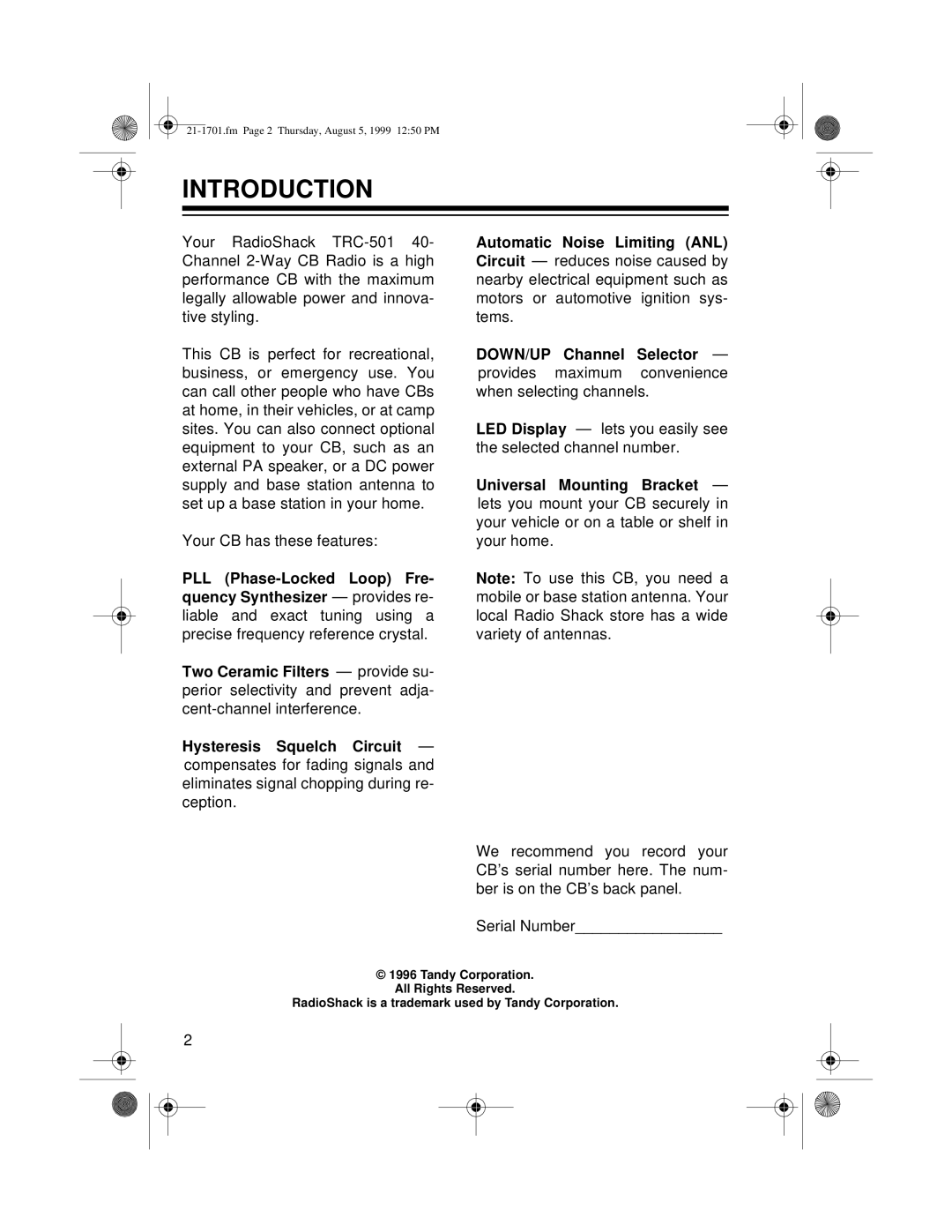TRC-501 specifications
The Radio Shack TRC-501 is a classic handheld transceiver that epitomizes the innovation of the late 20th century in portable communication technology. Released during the peak of the CB radio craze in the 1970s, this device catered primarily to hobbyists and amateur radio operators, and it quickly won the hearts of many with its compact design and impressive features.One of the main features of the TRC-501 is its ability to operate on the Citizens Band (CB) radio frequencies, which span from 26.965 MHz to 27.405 MHz. This range allowed users to communicate freely within a specified distance, making it suitable for personal use, small business operations, and even for truck drivers seeking to stay in touch while on the road. The unit supports 40 channels, providing ample options for users to find clear communication channels and avoid interference from other users.
The TRC-501 boasts a straightforward control layout, featuring a simple dial for channel selection and a push-to-talk (PTT) button positioned for easy access. The inclusion of an RF gain control helps users fine-tune their reception based on the signal strength, enhancing the overall clarity of conversations. Additionally, its built-in speaker ensures that audio is loud and clear, critical for effective communication in noisy environments.
In terms of technology, the TRC-501 operates using superheterodyne circuitry, a common method employed in radio communications that enables effective signal processing and minimizes noise. This technology helps the device maintain a reliable connection over various distances, making it versatile for different communication scenarios.
The TRC-501 is also designed for durability and portability. Its compact form factor, combined with a sturdy plastic casing, means it can withstand the rigors of everyday use. Users often appreciate its lightweight design, which allows for easy transport, whether in a vehicle or as part of outdoor activities.
Overall, the Radio Shack TRC-501 stands as a testament to the evolution of mobile communication technology during its time. Its combination of essential features, reliable performance, and user-friendly design has secured its place in the hearts of radio enthusiasts and collectors alike. The TRC-501 remains a symbol of a bygone era, reflecting the excitement of communication technology during the 1970s and the birth of more mobile forms of communication, paving the way for the advanced systems we have today.

